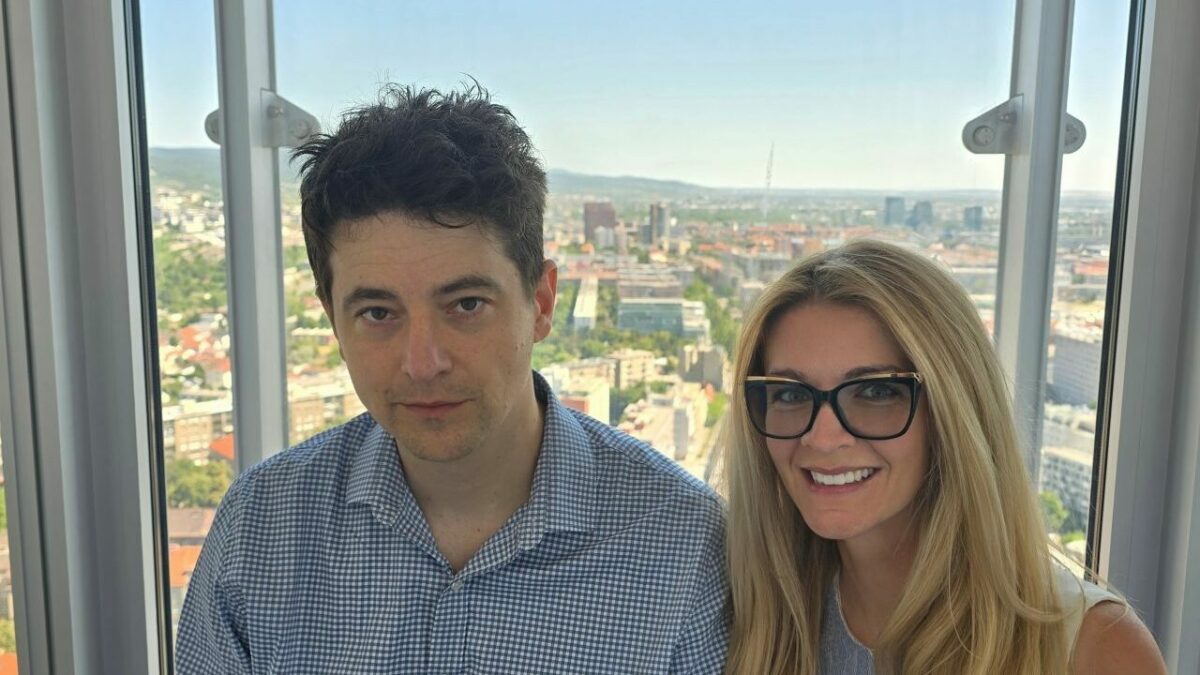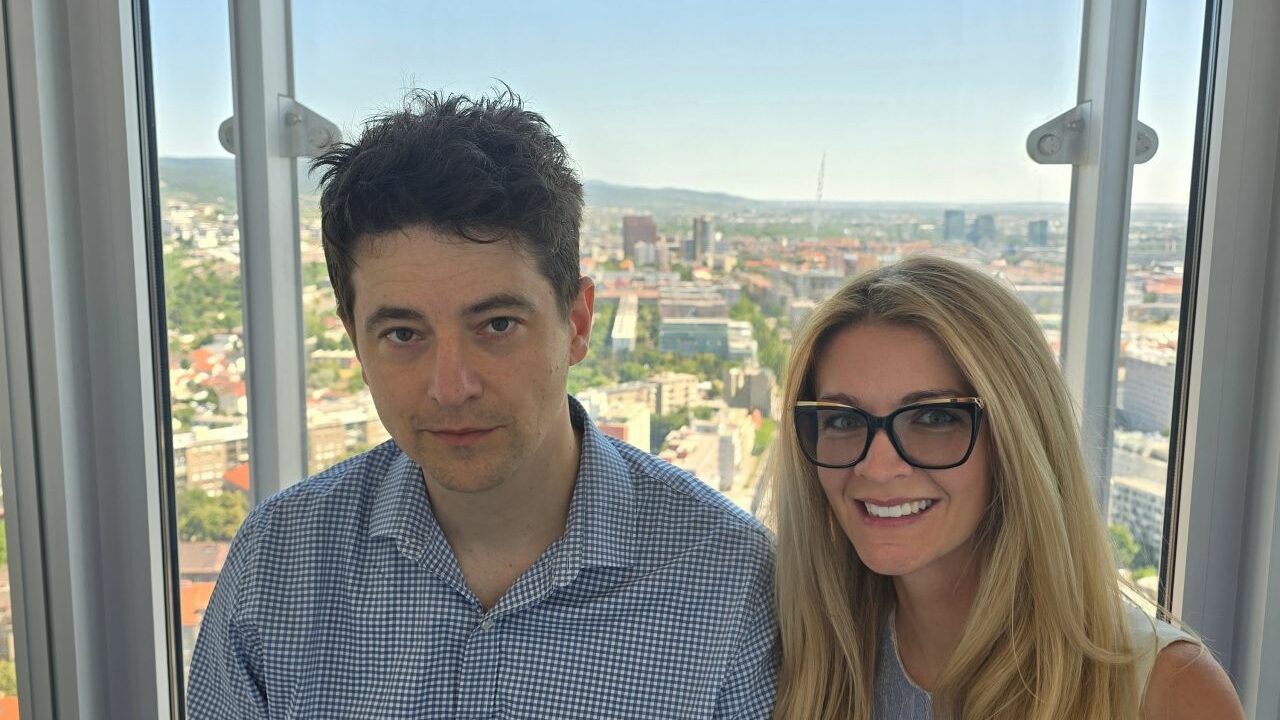Meeting with Michal Valko, expert on large language models
The National Supercomputing Centre and the National Competence Centre for HPC, represented by Lucia Malíčková, met with prominent Slovak scientist Michal Valko, who is among the world’s leading experts in artificial intelligence and machine learning. They discussed opportunities for future collaboration, with a particular focus on leveraging Slovakia’s HPC capacities to support advanced research in large language models and algorithms that require minimal human feedback.
Michal Valko currently serves as Chief Models Officer at a stealth startup, is a researcher at the prestigious French institute Inria, and lectures at ENS Paris-Saclay. In 2024, he also became the principal engineer for Llama at Meta, where he is building the online reinforcement learning infrastructure and conducting research for the Llama 3 models.
His research focuses on designing algorithms that can operate with as little human intervention as possible. This includes deep reinforcement learning, bandit algorithms, unsupervised learning, as well as so-called self play — learning by comparing one’s own outcomes. Recently, he has concentrated on data representations, language models, and developing deep learning algorithms with solid theoretical foundations. He is currently working on algorithmic solutions that enable more efficient fine-tuning and better alignment of large language models (LMMs).
Michal Valko comes from Slovakia, where he attended the Alejová Gymnasium in Košice. Looking back, he especially values the close collaboration between this school and the Faculty of Science at UPJŠ, which sparked his interest in science. He went on to study artificial intelligence and mathematical methods in computer science at the Faculty of Mathematics, Physics and Informatics of Comenius University. In 2011, he earned his PhD at the University of Pittsburgh under the supervision of Miloš Hauskrecht. He then completed his postdoctoral studies with Rémi Munos, with whom he later co-founded Google DeepMind Paris.
Throughout his career, he has also worked on projects with companies such as Intel, Adobe, Technicolor, and Microsoft Research. As early as 2009–2010, during an internship at Intel Labs in Silicon Valley, he contributed to the development of autonomous systems designed to help visually impaired people recognize faces.
The National Supercomputing Centre and the National Competence Centre for HPC will continue to actively seek opportunities to connect Slovakia’s HPC infrastructures with global leaders in the field of artificial intelligence. They believe that this meeting will also lay the groundwork for new ambitious initiatives.
 BeeGFS in Practice — Parallel File Systems for HPC, AI and Data-Intensive Workloads 6 Feb - This webinar introduces BeeGFS, a leading parallel file system designed to support demanding HPC, AI, and data-intensive workloads. Experts from ThinkParQ will explain how parallel file systems work, how BeeGFS is architected, and how it is used in practice across academic, research, and industrial environments.
BeeGFS in Practice — Parallel File Systems for HPC, AI and Data-Intensive Workloads 6 Feb - This webinar introduces BeeGFS, a leading parallel file system designed to support demanding HPC, AI, and data-intensive workloads. Experts from ThinkParQ will explain how parallel file systems work, how BeeGFS is architected, and how it is used in practice across academic, research, and industrial environments. When a production line knows what will happen in 10 minutes 5 Feb - Every disruption on a production line creates stress. Machines stop, people wait, production slows down, and decisions must be made under pressure. In the food industry—especially in the production of filled pasta products, where the process follows a strictly sequential set of technological steps—one unexpected issue at the end of the line can bring the entire production flow to a halt. But what if the production line could warn in advance that a problem will occur in a few minutes? Or help decide, already during a shift, whether it still makes sense to plan packaging later the same day? These were exactly the questions that stood at the beginning of a research collaboration that brought together industrial data, artificial intelligence, and supercomputing power.
When a production line knows what will happen in 10 minutes 5 Feb - Every disruption on a production line creates stress. Machines stop, people wait, production slows down, and decisions must be made under pressure. In the food industry—especially in the production of filled pasta products, where the process follows a strictly sequential set of technological steps—one unexpected issue at the end of the line can bring the entire production flow to a halt. But what if the production line could warn in advance that a problem will occur in a few minutes? Or help decide, already during a shift, whether it still makes sense to plan packaging later the same day? These were exactly the questions that stood at the beginning of a research collaboration that brought together industrial data, artificial intelligence, and supercomputing power. Who Owns AI Inside an Organisation? — Operational Responsibility 5 Feb - This webinar focuses on how organisations can define clear operational responsibility and ownership of AI systems in a proportionate and workable way. Drawing on hands-on experience in data protection, AI governance, and compliance, Petra Fernandes will explore governance approaches that work in practice for both SMEs and larger organisations. The session will highlight internal processes that help organisations stay in control of their AI systems over time, without creating unnecessary administrative burden.
Who Owns AI Inside an Organisation? — Operational Responsibility 5 Feb - This webinar focuses on how organisations can define clear operational responsibility and ownership of AI systems in a proportionate and workable way. Drawing on hands-on experience in data protection, AI governance, and compliance, Petra Fernandes will explore governance approaches that work in practice for both SMEs and larger organisations. The session will highlight internal processes that help organisations stay in control of their AI systems over time, without creating unnecessary administrative burden.

